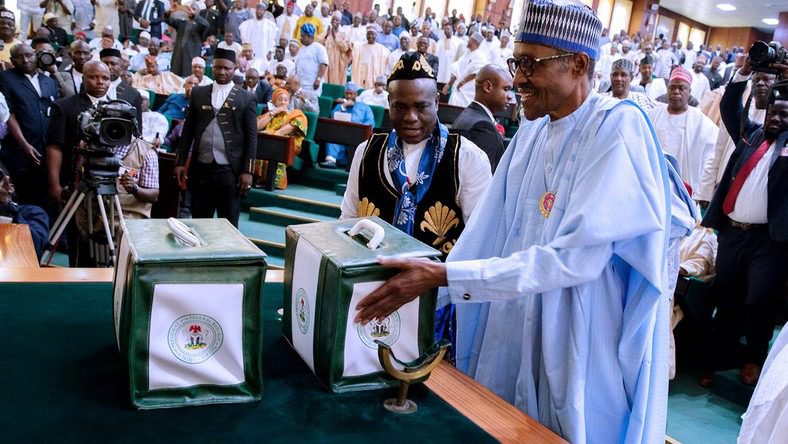Breaking News
[JUST IN] 2023 budget: Expert calls for removal of oil subsidy
‘‘The recent inquiry by the National Assembly into the spending of government-owned enterprises along with the many other inquiries conducted in the past, most notably the off-your-mic edition continues to highlight how these enterprises continue to serve as a constant conduit for leakages with expenditures exceeding revenue.”

Following the presentation of the N20.5 trillion budget for 2023 by President Mohammadu Buhari, an Abuja-based Chartered Accountant, Mr. Afeez Balogun, has called for total removal of oil subsidy regime.
Balogun, while calling for the total removal of the oil subsidy regime in the 2023 fiscal year, noted that the Non-Oil revenue which has increased over the Buhari administration is due to the multiplicity and increases in taxes with companies groaning under the weight of the increased tax obligation.
Mr. Balogun was reacting to the budget presented by the President on Friday to the National Assembly.
Recall that President Mohammadu Buhari had on Friday presented the N20.5trn budget to the joint session of the National Assembly and promised to assent it into law before the end of the year if passed by the lawmakers..
The budget is the 8th and final budget of the PMB-led administration and is expected to demonstrate the intention of the Buhari administration to finish strongly as promised by the President.
‘’It is time to do away with the oil subsidy regime! Non-Oil revenue which has increased over the Buhari administration is due to the multiplicity and increases in taxes with companies groaning under the weight of the increased tax obligation,’’ he said.
Balogun, who is Group Tax Manager at De-United Foods Industries ltd, Lagos Nigeria, said the 2023 budget presented by President Mohammadu Buhari is expected to demonstrate the intension of the Buhari-led administration to finish strong as claimed by the President.
With a budget size of N20.5trn, an 18% increase over the 2022 revised budget, the government promised to do more in the fiscal year to serve the people.
Given the inflationary trend and reduction in purchasing power, he said, ‘’it remains to be seen if the increased budget size is not merely nominal when compared with the 2022 budget.’’
In defense of the budget, the President remarked that the proposed expenditure “reflects the serious challenges” faced by Nigeria and contains “key reforms necessary to address them’’.
For him, the immediate impact of this record budget is the widening of the country’s economy financed by borrowings.
Consequently, Balogun pointed out that the huge deficit contained in the budget would result in the government committing yet another significant portion of its revenue toward servicing its debt.
‘‘While, the 2023 budget provides for N6.3tn towards servicing the nation’s debt representing 70% of its projected revenue, an improvement from the 96% recorded in 2021 and 100% recorded in the current year, it remains to be seen if the projected improvement is because of the wide condemnation trailing the news of the country’s debt to revenue ratio hitting the 100% mark.
‘’Admittedly, the President noted that the country’s debt-service-to-revenue ratio needs ‘’close attention’’ with a revenue-to-GDP ratio of 8%, while still maintaining that ‘’our debt position remains within cautious and acceptable limits compared to peer countries.
‘’As at the end of June 2022, total public debt (N42.8trn) is within our self-imposed limit of 40 per cent of GDP,’’ he noted.
Meanwhile, experts have continued to warn that Debt to GDP ratio is not the relevant indicator as the country’s debt is not serviced by its GDP but by revenue.
Balogun, who described how some government enterprises continue to serve as a constant conduit for leakages with expenditures exceeding revenue called for tightening of all leakages in the coming year.
‘‘The recent inquiry by the National Assembly into the spending of government-owned enterprises along with the many other inquiries conducted in the past, most notably the off-your-mic edition continues to highlight how these enterprises continue to serve as a constant conduit for leakages with expenditures exceeding revenue.
‘’While so much has been opined about diversifying the nation’s revenue away from oil, oil revenue continues to account for about 80% of the nation’s foreign exchange receipt.’’










